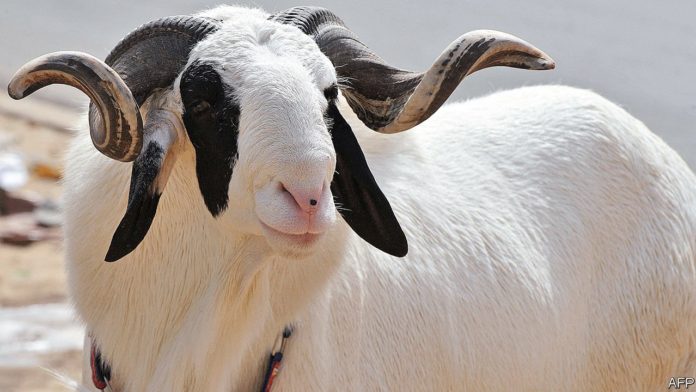
Small Ruminant Production Enhancement Project (SRPEP) has stepped in with a 40 million dalasis credit facility to boost ram sales for the Eid al-Adha (Tobaski) festival.
Mamud Njie, project director of SRPEP, outlined some of the organisation’s interventions in helping livestock farmers .
He said the project has provided an Islamic credit facility to the tune of 40 million dalasis that have been taken by small ruminant farmers to buy animals and to improve production.
He added that out of that amount, 68% went into buying animals to sell for the Eid al-Adha feast (Tobaski).
According to him, this will increase the number of animals and as well increase the participation of Gambians and also increase income for the Gambian farmers.
He said that the showground allows dealers both Gambians and foreigners to sell their animals in a safe and secure place “since it is a Muslim feast and most people would be needing these animals for their religious obligations.”
“We are more prepared this year than last year since most of the challenges regarding the availability of water and security and electricity were solved prior to the commencement of the ram sale,” he added.
Mr Njie explained that the only constraint the dealers complain of this year is the inadequate shades “since the feast is occurring in the rainy season”, adding that “too would be looked into before 2023.”
“At the trade fair by next year, we would want to construct a borehole so that the dealers will not be depending on NAWEC for water and we also hope to increase more shades for the showground and the credit facility,” he assured.
Momodou Darboe, Director General, Gambia Livestock Marketing Agency (GLMA) said that GLMA is engaged in the commercialisation, marketing, and trade of livestock in The Gambia, and as a body responsible for trade in the country, their core mandate is to facilitate and promote sales of livestock in the country.
According to him, they conducted a study in order to know whether the stock in this country is enough but they realised that it was not enough.
He said they could not rely entirely on the native farmers “lest there wouldn’t be enough animals for the Muslim feast”.
Reporting by Adama Makasuba










Recent Comments